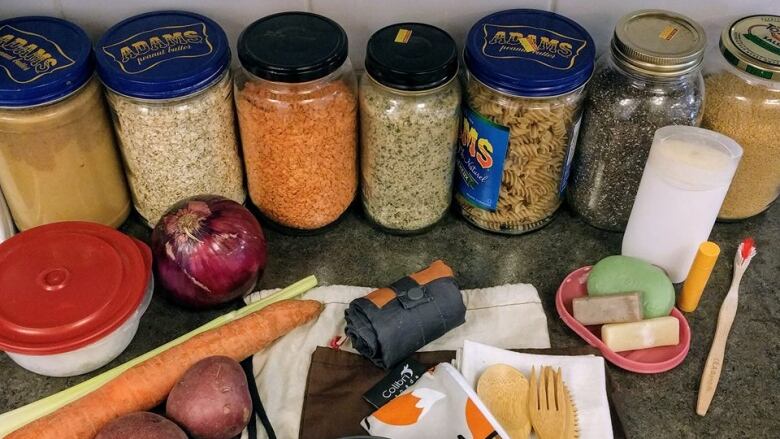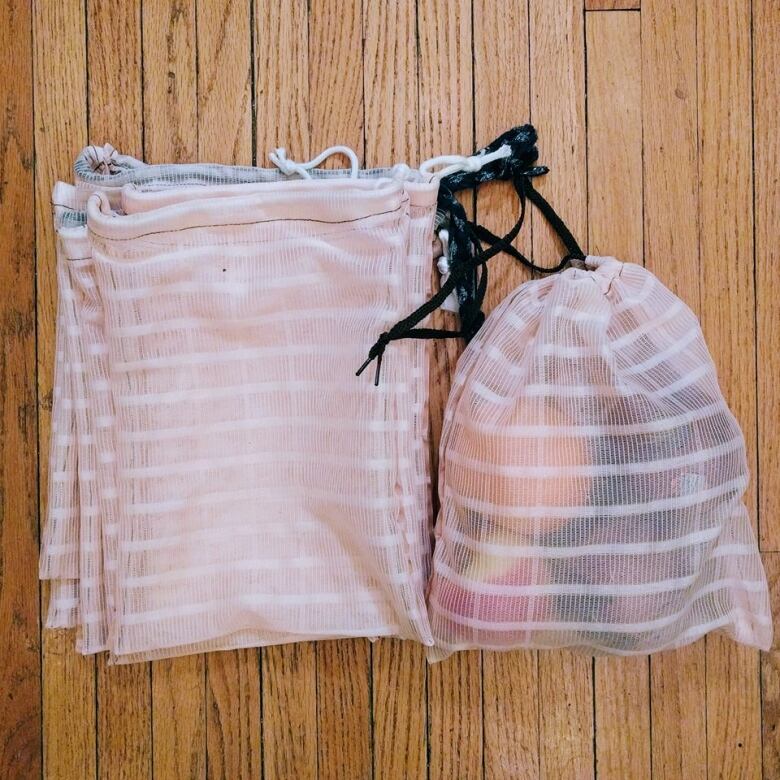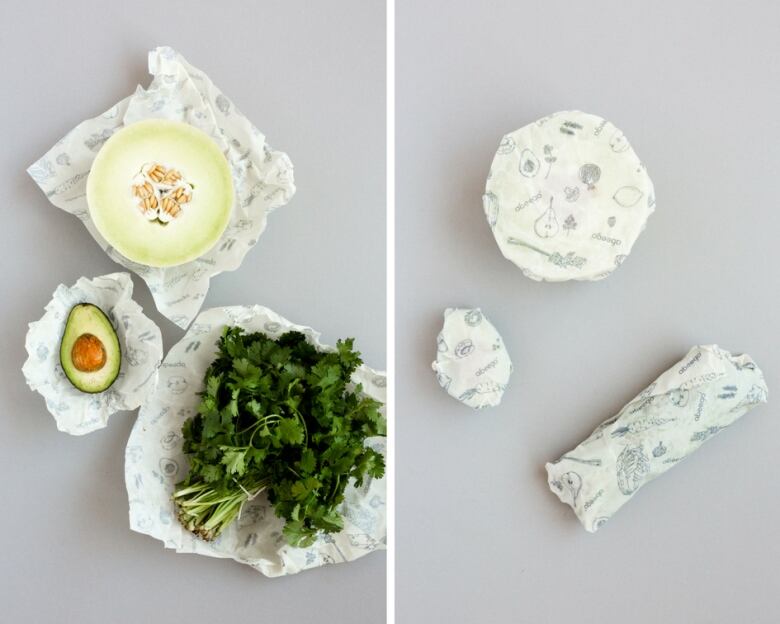How to go plastic free and cut waste in the kitchen
Its all about changing your habits, says waste-free Saskatoon resident

With plastic bags no longer accepted in Saskatoon recycling bins, and the city aiming for 70 per cent waste diversion by 2023, the average resident may be left scratching their heads about what to do with all the plastic.
Saskatoon resident Meg Dorwart, who has been plastic-free since September 2015, says it's all about changing your habits..
"I was just frustrated with plastic," Dorwart said. "I thought it was very silly that we have this material that we make that's forever plastic and we throw it away and it ends up in these landfills, so I guess frustration just led to action."
One habit at a time
Dorwart cut plastics and waste out of her life slowly over many years. She recommends starting with one or two habits to changeand focus on that until it becomes a normal part of your routine.
It's also important not to get down on yourself if you slip up.
"Don't feel guilty about it, just be aware that you did that and potentially make the change later. Don't put too much pressure on yourself," she said.

Avoid wastein the first place
Dorwart does a lot of her shopping at bulk food stores.
"I'll either bring a container that they'll pre-weigh ahead of time, or I'll bring a cloth bag that I can just fill with whatever I want," she said. "When I come home, I'll either dump it into a glass jar or whatever I typically store that item in."
She does shop in grocery stores, but sticks to the bulk food and produce sections.
Use what you have
Dorwart has been waste-free since January 2017, so her number one concern is cutting down waste, not necessarily avoiding plastic.
"If something already exists, it's better to use it than to buy something new that's plastic free."
She has plastic containersthat she's been using for years. She just doesn't buy any new ones.
Explore the alternatives
Whether your concern is waste or using plastics, there are a multitude of more environmentally-friendly options for you to choose fromincluding glass containers, parchment paper, wax paperand beeswax cloth wraps.
"Cloth bags are my number one thing to bring to grocery stores," Dorwart said. "You just fill whatever you want in your cloth bag, bring it home, then put it in your glass jar or mason jar or whatever you want, and then toss it in your laundry."

She recommended trying to switch to these reusable storage items for food:
- Small cloth bags for spontaneous bulk dry food shopping.
- A reusable bag for spontaneous shopping.
- A cloth napkin for spontaneous donut purchases.
- Utensils for any time you'd typically use disposable utensils.
- A collapsible bowl for food truck purchases.
- A water bottle.
- A coffee thermos.
- Reusable bags. Lots of them.
- Cloth bags for bulk food.
The future is the past
Toni Desrosier looked to the past when she developed her product Abeego in 2008. The plastic wrap alternative is a beeswax-infused, moldable cloth.
"For 50 years, we've listened really, really closely to the message that you have to wrap, lock, and seal your fresh food in an airtight product, and in that time we've actually stopped listening to generational history of what we actually did to keep food fresh and alive," she said.

Her inspiration came from looking at traditional forms of preservation, like using beeswax to seal canned goods, or storing meat in buried beeswax-covered hides in the winter.
"With the emergence of plastic waste being a major conversation and the food waste being such a major conversation, a lot of new things popping up, and people are more open to change than ever, so I think it's a really exciting time."












_(720p).jpg)


 OFFICIAL HD MUSIC VIDEO.jpg)
.jpg)



























































































